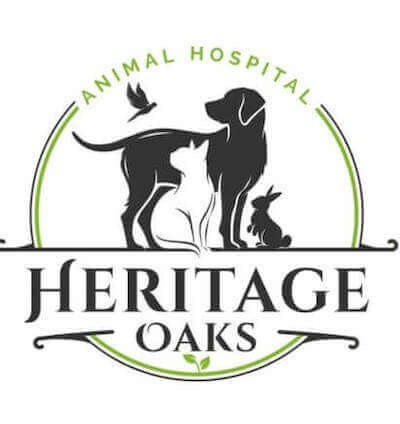At our hospitals, dogs with allergic reactions are the most common issue we treat. As a hospital located in South Texas, we are extensively experienced in helping manage this frustrating condition and helping provide relief for dogs and owners alike. When you bring your dog, we will first obtain a thorough history to determine whether the allergy seems to be seasonal, consistent, intermittent or contact. An examination will also aid in determining the allergic pattern. Our next focus will be to provide allergy relief and comfort while we work to resolve the underlying issues for your dog.
Dog Allergy Symptoms
While not usually life-threatening, allergies in dogs do cause extreme discomfort, ear infections, odor and skin lesions . Most symptoms are associated with dermatologic problems but some can also lead to chronic respiratory issues in some dogs if untreated. Sometimes, an owner will bring their dog to a veterinary appointment for a serious medical condition and find out that their dog has an allergy and the severe symptoms occurred secondary to it.
Allergy symptoms commonly found in dogs:
- Excessive licking with saliva stain (orange tint) to paws
- Compulsive scratching
- Recurrent ear Infections/ear flapping
- Chewing on the same or different body parts or areas
- Regularly rubbing body or body parts against the ground, walls, furniture, etc.
- Frequent sneezing and/or wheezing
- Skin irritation/fur loss
Most allergies develop in the first or second year of life for dogs. They are usually genetic and cannot be cured, but can be controlled. In the first year, the dog will be exposed to many types of inhaled and skin allergens but be too young to have a mature immune response. A significantly smaller number of allergies may be caused by food (the protein source-NOT the grain) . In the second year of life, the dog's immune system will overreact and release inflammatory substances ( such as histamine) leading to symptoms of itching. Most allergic dogs are born with a poor skin barrier which allows for antigens to enter the skin more easily. These dogs also suffer from flea allergies oftentimes, as well, as others, and secondary infections occur, along with recurrent skin infections.
Because these symptoms can have several causes, a dog exhibiting any of the above symptoms should be examined immediately. Early diagnosis and treatment of dog allergies not only increases the likelihood of your dog's treatment being successful but can also be less expensive than delaying treatment. The longer the wait, the more your dog suffers and more severe the secondary infections can become.
Inhaled allergies are the most common dog allergies in this area. Contact allergens such as flea, food, dust, and pollen are the next most common cause of allergies in dogs. These allergens can cause an allergic reaction in the body, focused largely on and within the epidermis, causing severe irritation. The result is a dog scratching itself to the point that skin infections and injuries can occur.
- Examination and testing will focus on ruling out other potential causes and irritators, including:
- Fleas
- Mites
- Fungal or yeast infections of the skin (common secondary invaders)
- Chronic bacterial infections (common secondary invaders)
- Hypothyroidism
Our veterinarians might also order a 12-week hypoallergenic diet to rule out a food allergy. Food allergies are difficult to detect and should be determined solely through strict dietary trial manipulation. Once all of these possibilities are ruled out, we will treat the remaining causes.
Treating allergies in Dogs
It is imperative to understand that allergies cannot be cured but can be successfully treated. There are many types of treatment and include the combination of oral medication, bathing, topical therapy and even injectable targeted cytokine inhibitor therapy. This will vary for each specific case.
To learn which allergy medicine and what dog allergy treatment methods will work best for your dog, schedule an appointment. Every allergy case is different and must be approached on a case by case basis.
Choosing The Best Dog Food For Allergies
Rarely, some dogs suffer from food allergies. The only way to determine food allergies is to feed an elimination diet in which your dog's diet is changed to a limited list of ingredients that contain no known allergens. These are commercial prescription diets specifically made for food allergic dogs. No treats or table food may be fed during this time.
We can help determine whether or not your dog has a food allergy by prescribing three possible diets:
- Limited ingredient prescription diet: We limit the ingredients of your dog's diet to narrow down the specific allergen causing your dog's reactions
- Novel ingredient prescription diet: We introduce ingredients your dog has not been exposed to and is, therefore, less likely to be causing the reactions
- Prescription diet: We prescribe a kibble-based or ingredient specific diet that is designed to contain hypoallergenic ingredients
Schedule an Appointment For Your Dog
It's important to remember that only about 5% of all dog allergies are food-based. Also, it is important to discern between dog food allergies, so schedule an allergy appointment and allow us to help your dog live a more comfortable life.
Dog Allergies and How to Treat Them
Dr. Becka Byrd
Northern Oaks Bird and Animal Hospital
Hi, I'm Dr. Becka Byrd with Northern Oaks Bird and Animal Hospital and Heritage Oaks Animal Hospital. I'm here to talk to you today a little bit about allergies. Dogs can have tremendous numbers of allergies. We happen to be in South Texas, and South Texas is one of the allergy capitals of the world. A lot of dogs will move here from other parts of the country and have never had allergies before, and all of a sudden, they cannot stop licking, chewing, and scratching. The number one sign of inhaled allergies in dogs is foot chewing. If your dog licks their feet and they are not a dog that has previously done that, you've just noticed it, it keeps you up at night, or wakes you up in the morning, they more than likely have inhaled allergies.
These aren't food allergies. These are not environmental allergies from walking on grass. These are allergies from breathing. It's the same type of allergy we get when we get a stuffy nose or sinusitis. You see the oak tassels falling, cedars are high in the air, or molds are high. There's always something blooming here in South Texas. A lot of these dogs will have allergies year-round. You can also see repeated ear infections because skin is skin on a dog, so whether it's in the ear, on their feet, or under the neck, these dogs will exhibit chronic signs, and they will flare up at the same time. In order to control these ear infections and these repeated skin infections, we first have to control the underlying allergy. There are a couple of products out now that are very helpful for this, and unfortunately, antihistamines like Benadryl will only control the reverse sneeze and gag that we sometimes see. They won't control the skin.
Two things can control that. One is something called cytokine and cytokine controllers. Cytopoint will stop the cytokine release at the site where that signal is released. So it prevents that cytokine from being released to cause the itch signal, and it works very well. It lasts for an entire month, and it's an injection we give monthly. The other product is something called Apoquel. Apoquel is a molecule that binds at the site where that cytokine would bind, and it stops that cytokine from binding to cause a signal by blocking it. Apoquel is a tablet that's given daily. Both are great options, depending on what works best for your dog. Talking with one of us would be the best way to figure out how your dog can best respond. Remember, we can't cure allergies, but we can definitely treat them therapeutically. Other good options are to continue with a therapeutic shampoo and use antibiotics when necessary for the underlying infection that occurs from the licking, scratching, head shaking, and ear inflammation.
If you still have other questions and you'd like to reach out to us, you can call us directly at (210) 496-1315, or you can email us at [email protected]. But please do reach out, and we'll get back to you as fast as we can. Don't forget to follow us on social media https://www.facebook.com/northernoaksvet/ #



